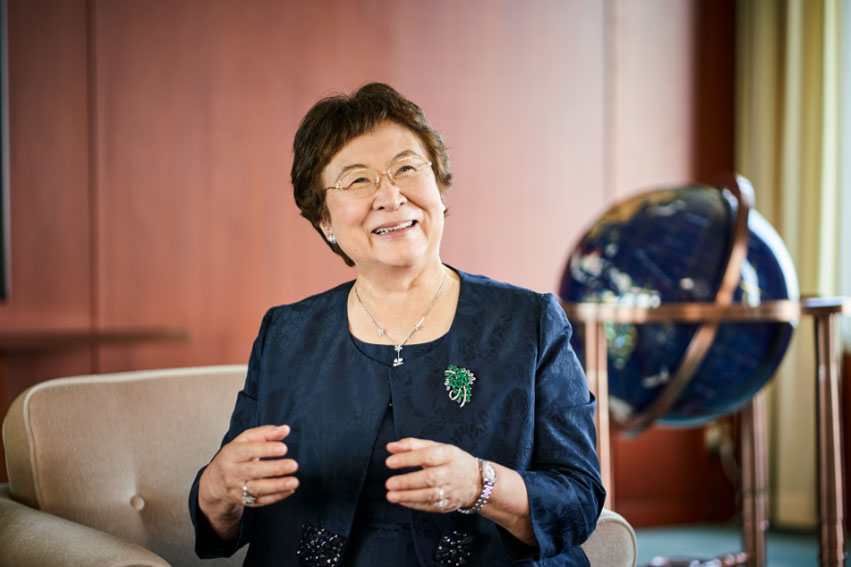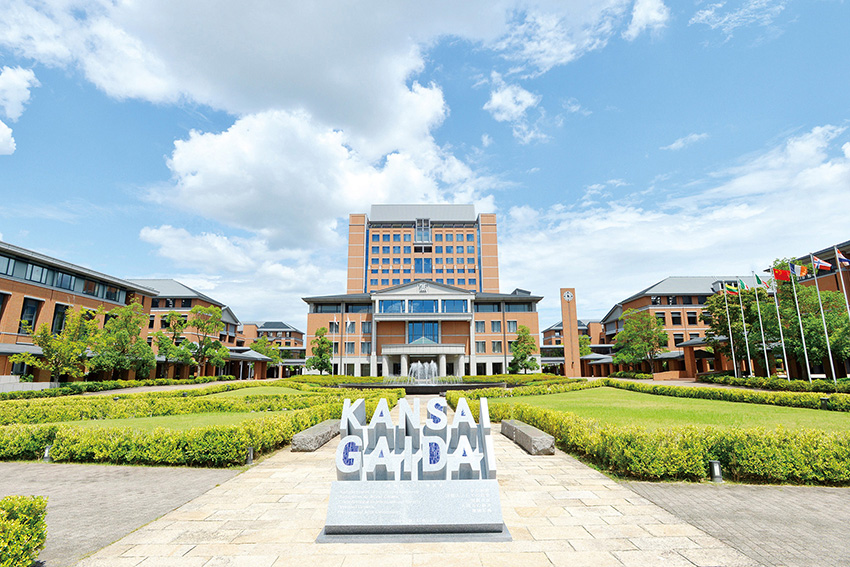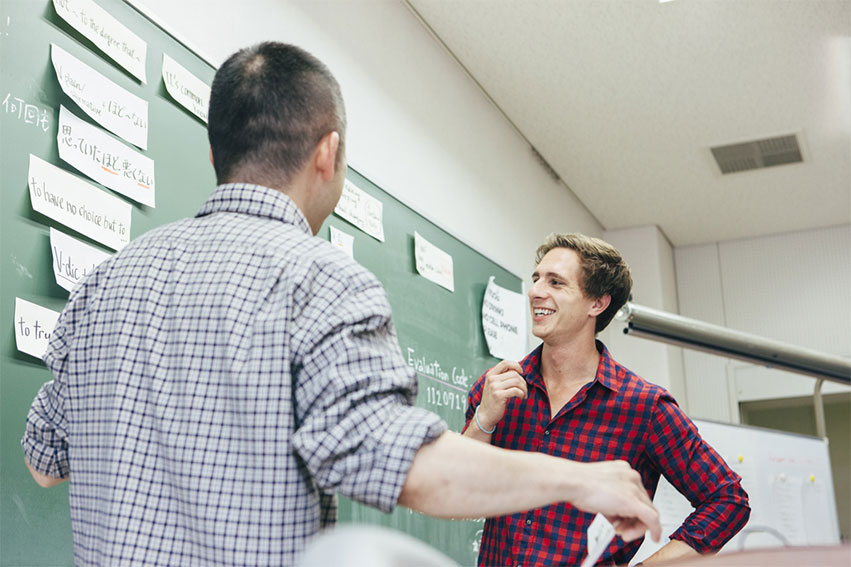In this exclusive interview, Eiko Tanimoto, Chancellor and President of Kansai Gaidai University, discusses the institution’s pioneering role in global education, its efforts to bridge cultural and linguistic divides, and its commitment to fostering internationally minded students. She highlights initiatives such as the Asian Studies Program, digital transformation in education, and the upcoming School of Japan and Asian Studies, positioning the university as a key player in shaping Japan’s future global workforce.

Could you give us a quick introduction to Kansai Gaidai University? How was your university established and do you have any particular areas that you specialize in?
Kansai Gaidai University was established in 1945, right after the World War II. The founder hoped to create an institution which would focus on international education to avoid the occurrence of such tragedies. The Junior College was opened in 1953 and then the four-year University in 1966. Focus on global education has been kept throughout our history.
We have over 50 years of history in global education, and we take pride in being a pioneer in the development of international programs in Japan. During the process, we faced many challenges, but we always tried our best in overcoming such difficulties with strong determination and belief in our endeavors. All these efforts have pushed us to become a leader in the field, and quite a few universities visited us to model our scheme to create their own educational programs. This success is owed largely to our faculty and staff who are strongly committed to and believe in global education.
Our motto is, “Students first.” We create various educational programs for students by providing the optimal education scheme to support them and to achieve their dreams. Nurturing global citizens is the key concept, and to achieve such a goal, language education plays an important role as it expands the platform of our students’ study. We offer extensive study abroad programs and send many students overseas as we believe such opportunities enhance our students’ learning experience.
In 1972, the Asian Studies Program (ASP) was established as a centerpiece for welcoming international students to our university. Since then we’ve been actively welcoming international students while also sending our students on reciprocal exchange programs. The Asian Studies Program is unique in that the program aims to provide well-rounded knowledge about Japan and Asia by offering courses in history, business, pop culture, etc., all taught in English. Such courses are offered at the 3rd or 4th year level of overseas undergraduate programs, so as to ensure the smooth transfer of credits to students’ home institutions. In addition, Japanese language courses are offered at all levels from beginner to advanced. When overseas students look for study opportunities in Japan, the lack of high Japanese language proficiency becomes an obstacle, but in our program, we are able to accommodate any student as long as they can take courses in English.
Another noteworthy feature is the academic calendar that the Asian Studies Program has adapted. The ASP’s academic calendar follows a typical academic calendar of an overseas institution in the Northern Hemisphere. This makes it much easier for international students to participate in our ASP program. Other universities in Japan may offer courses taught in English, but usually such courses are English versions of regular undergraduate programs, and the semesters run under a typical Japanese academic calendar. The Asian Studies Program is tailored to serve the needs of international students. These two features are much appreciated by our partner institutions as well as their students, resulting in our university welcoming 900 international students each year.

Japan is the oldest society in the world with a rapidly decreasing population thanks to low birth rates. This poses challenges such as a shrinking domestic market as well as labor crisis. Additionally, Japan lacks a globalized workforce when compared to other countries, and as such the government has set ambitious targets of attracting 400,000 international students to Japan. In your opinion, what role do your universities play in tackling these labor force challenges?
I did some research, and the data says that in 2022 the number of foreign residents in Japan was around 3.1 million. Despite the Japanese government’s ambitious targets of attracting more international students and/or foreign workforce, the support system has yet to be fully developed.
The biggest obstacle for foreign residents to be integrated in Japanese society is the language barrier. We have developed some academic programs to address this issue. In the School of Japan Studies and Global Communication, the Teaching Japanese as a Second Language Program is included to respond to the shortage of Japanese language instructors. The Japanese government has been promoting the standardization of Japanese language teaching by making Japanese language qualifications a national certification with an attempt to enhance the status of teachers. We are sure that our students with training in teaching Japanese language as a second language as well as in global communication will effectively serve foreign residents who are in need of such support.
In addition, our Elementary School Teacher Program has a special feature in that understanding of English and global issues is included. This not only helps local elementary school children to widen their perspectives but also helps the studies of foreign residents’ children. The Council for the Creation of Future Education also emphasizes the importance of education for children.
Although the government is calling for 400,000 international students, unless we have a foundation to welcome these students, we won’t be able to provide the best educational service that could overcome the shortage of manpower. It is very important for universities to lay a solid foundation to welcome foreigners to Japan.
Our university has a robust foundation to welcome international students, and what I always say to our faculty and staff members is, “Foreign students are a gift from the future.” It is important that we provide them with a good educational environment and strong learning opportunities, so that they take what they learn here back with them to their home countries and share with others.
We have over 20,000 alumni of the Asian Studies Program pursuing their careers all over the world. International students participate in the Asian Studies Program for one semester or one academic year, and most of them return to their home universities to graduate. After graduation, however, quite a few of them come back to Japan through the JET program or by other means as they truly come to love Japan. Others choose to enroll in graduate programs at prestigious Japanese national universities to advance their academic pursuit. We also had the pleasure of hosting visits by alumni who became Hungarian and British ambassadors. We are proud to say that we are providing an effective gateway for international students who wish to live and work in Japan.
You mentioned the Council for the Creation of Future Education, which is one of the important bodies spearheading Japan’s attempts to attract not only more foreign students but also high-caliber foreign teachers and graduate students. To achieve this, a JPY 10 trillion fund has been set up. What initiatives is your university putting in place to try and attract graduate students and foreign staff?
We are currently undergoing a university-wide project which would incorporate cutting-edge technologies such as DX and AI. We are also planning to undertake major reforms of our graduate programs, so that students are able to pursue graduate degrees in English.
We pay close attention to the quality of education. To further enhance the quality, it is imperative that we hire faculty members of high caliber. We feel it important to provide our students with opportunities to meet and learn from distinguished professors. The hiring of highly qualified professors is one of the key elements for further enhancement. Recently, we have been hiring Japanese faculty who have earned advanced degrees from and/or have experience in teaching at overseas universities. Diversity in faculty composition is another feature of our university. 30% of our faculty come from 19 countries, which positively contributes to our educational programs in terms of diversity.
Speaking of Japanese government funds/financial subsidies, we face challenges in terms of fulfilling eligibility as well as restrictions imposed on the usage of such funds. We have not been able to fully utilize such funds.
In your answer, you mentioned the integration of DX, AI, and cutting-edge technology. Your university has opened the School of English and Digital Communication that aims to increase student language skills and grant them the ability to learn in a constantly changing digital landscape. What role do you see this new technological future having in the future teaching at your university?
This School provides students with two of the most effective competencies—English and digital literary. These two go very well together as English can be used in developing digital skills while digital technologies may enhance language learning. Our university is not specialized in computer sciences, but by acquiring fundamental knowledge and English proficiency, our students are able to take advantage of our student exchange program and study at our overseas partner institutions. By utilizing academic programs of our partner institutions, we are able to provide study opportunities in digital communication to students who wish to further pursue this area.
One of the criticisms that is leveled at Japanese universities is the difficulty many foreign students have finding employment post-graduation. Often we’ve heard about a lack of support and difficulties navigating the Japanese job market. Here you have your internship program as well as a future career department that can offer the support needed by graduates. What kind of success have your international students had in finding employment after they’ve studied here?
The College of International Professional Development as well as the School of International Future Career accommodate domestic students only. The College of Global Engagement accepts international transfer students, but we do not yet have any students who have graduated as the College launched in 2023. Other international degree-seeking students at KGU are Chinese students who transfer to the College of Global Communication and Language. Given the relatively limited number of international students who graduate from our university, we have yet to develop any comprehensive support for our international students, especially given that such students may proceed to go to graduate schools after graduation from our university. We are in the early stages of planning for this type of support.
We are currently in the process of developing a new scheme, that is students are able to complete their undergraduate and graduate degree requirements within a total of five years. Once this is launched, it will be an effective pathway for students wishing to obtain a graduate degree in Japan.
In the Asian Studies Program, we have been providing internship opportunities to our international students for almost 10 years. At first, Japanese companies were reluctant to welcome international students as interns, but because of positive outcomes of the internship program, more companies are now supporting this initiative. Many students go back to their home countries with the experience of working in Japan and join Japanese-affiliated firms after graduation.
Komatsu, which is in our neighborhood, has been accepting our interns. Students learn so much through their internship during their time here, making them more attractive hires for Japan-affiliated companies when they return home.
You’ve mentioned how you focus a lot on language education, but a key is also educating students about international history and different cultures. We know that you have a School of English Language and Communication that does very well in preparing students for future careers as well as giving them opportunities to study abroad. How do you make sure that the curriculum keeps up with career demands while also offering plenty of opportunities to study abroad?
What we try to emphasize to our students is that English is a tool for further enhancement of learning. Within this College, we offer three concentrations: Concentration in Global Language and Cultural Studies, Concentration in International Relations and Business Studies, Concentration in International and Global Studies.
These concentrations are periodically reviewed and reformed in order to prepare our students for their future careers.
We aim to prepare students for their future by enabling them to develop a solid liberal arts background, which is very important in any career. Study abroad is strongly encouraged as utilizing the educational programs of our partner institutions, our students are able to expand and deepen what they learn at our university, particularly in the real-life context. Study abroad experiences greatly enhance our students’ learning.
In terms of student accommodation, we saw that both foreign and Japanese students can live together. The goal isn’t just to be a boarding house for people to live in but a place where students can exchange their cultures and languages and learn more about each other. Could you tell us some of the feedback you’ve gotten from students and how they’ve enjoyed their time here? Is there a way for students who have graduated to return and give back?
As you said, it's not just a dormitory; GLOBAL COMMONS 結-YUI- is the place where students from countries and cultures from all over the world meet and interact to learn with each other. Given this target, residents deeply appreciate the cross-cultural setting of this facility as well as the educational programs that are offered through this platform. It is a place where experiential learning takes place as students are living together in this global community.
We have resident assistants who support the operation of this educational facility. After receiving training, they are assigned to units and provide day-to-day support. In addition, many events are organized by RAs to enhance interactions between domestic and international students. Although RAs may face some difficulties, we tell the students that it is very important to experience these challenges when they are students. They learn how to work in a diverse cultural setting which will prepare them well for their future careers in a global environment. These experiences can be put to good use after graduation.
This is one of the many initiatives that we offer to students to create an effective “learning by doing” platform.

We’ve talked a lot today about the importance of international connections, not only through language but also overseas study. Your university has more than 400 partner universities in more than 50 countries. How important are these partnerships to your mission, and moving forward are you looking to form any new partnerships?]
Our partner institutions play a vital role in the development and enhancement of our international education. Through collaboration with partner institutions, we are able to develop innovative study programs, expand the study arena for our students as well as for their students, etc. Global education would not exist without overseas partners.
Given the history of our university being founded with English and Spanish departments, the development of our affiliations has been focused on English- and Spanish-speaking countries. We plan to expand our network more in Asian countries to give more study abroad opportunities to students in the newly established academic departments.
From our research, we saw that you are opening up a new school in 2025 which will be the School of Japan and Asian Studies. Could you elaborate on the motivation behind this program and the unique features that you will provide students?
We would like to become a hub for students in Asian countries by providing them the opportunity to study at our university as well as at our partner institutions in North America or Europe. For our students, it will be a great opportunity to study with students from Asian countries.
It is said that the upcoming decade is the Age of Asia. Nurturing students specialized in Asia will allow the students and our university to engage effectively with a region where significant economic growth and opportunities are expected.
With the expansion of our network in Asian countries, our university will have a well-balanced partnership structure to further enhance our educational programs.
Imagine that we come back in six years and have this interview all over again. What goals or dreams do you hope to achieve by the time we come back for that new interview?
I would describe our university as a place to nurture and grow the hopes and dreams of students. This has been true from the foundation of our university and will not change. To do so, we will continue to strive for the enhancement of our global collaborations, so as to offer our faculty, staff, and students many opportunities to grow as global citizens.
To read more about Kansai Gaidai University, check out this article about them
0 COMMENTS